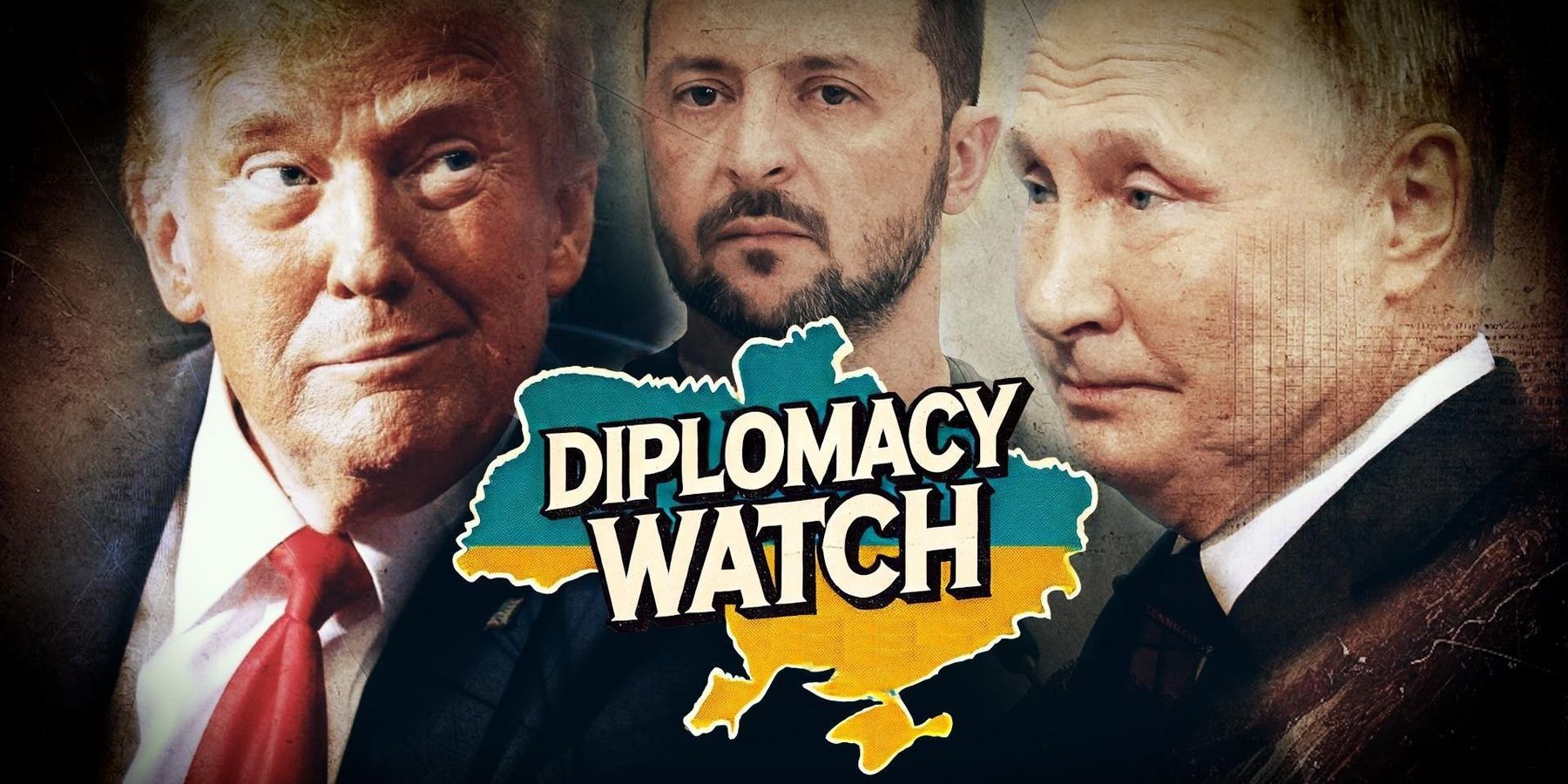Despite prospects for direct diplomatic talks on June 2 in Istanbul, Russia and Ukraine remain in a spat over the peace memorandums outlining prerequisites for ending the war to be discussed there.
Russian FM Sergey Lavrov originally proposed the talks on Wednesday. By Thursday, Russia said it had not received a reply from Kyiv about attending. Instead, prominent Ukrainian officials are publicly pressing Russia to produce a peace memorandum ahead of the possible talks, like it already has done.
“Why wait until Monday?” Ukrainian Foreign Minister Andrii Sybiha asked on X Wednesday. “If the Russians have finally elaborated on their “memorandum” — after ten days of reflections and attacks — it can be passed to us right away. We anticipate that the Russian side will not derail the next meeting and will immediately submit their proposals for our consideration, as previously agreed.”
“Only a well-prepared meeting has the potential to produce tangible results,” Sybiha wrote.
Along similar lines, Ukrainian FM spokesperson Heorhii Tykhyi said on social media that Russia hadn’t released a memorandum yet because they are "afraid of revealing that they are stalling the peace process.”
“We are not opposed to further meetings with the Russians and are awaiting their ‘memorandum’ so that the meeting won’t be empty and can truly move us closer to ending the war,” Ukrainian Defense Minister Rustem Umerov wrote on Facebook. “The Russian side has at least four more days before their departure to provide us with their document for review.”
Lavrov insisted Russia “is ready to present a memorandum to the Ukrainian delegation and provide the necessary explanations during a second round of direct talks in Istanbul on Monday, 2 June.”
Meanwhile in Washington, State Department Spokesperson Tammy Bruce was asked yesterday if the U.S. would be involved in the Istanbul talks. “I'm not going to go into that. I have nothing to preview for you on that,” she responded.
And tensions are mounting over prospects of additional sanctions on Russia. For his part, Trump said Wednesday he hasn’t imposed new sanctions because "I think I'm close to getting a deal."
"I don't want to screw it up by doing that," Trump said, discussing sanctions. "This isn't my war. This is Biden's war, Zelenskyy's war and Putin’s war. This isn't Trump's war. I'm only here for one thing — to see if I can end it.”
Trump was asked whether he thinks Putin wants to end the war on Wednesday. "I can't tell you that. But I'll let you know in about two weeks,” he replied, a phrasing that some journalists have interpreted as a deadline to negotiating parties.
"We're going to find out whether or not he's tapping us along or not. And if he is, we'll respond a little bit differently. But it will take about a week and a half, two weeks,” Trump explained.
Some Republican lawmakers remain eager, but are ultimately waiting on Trump for the go-ahead, to push more sanctions on Russia through Congress via a sanctions bill advanced by Lindsey Graham (R-S.C.). In addition to slapping new sanctions on Russia, the bill would implement a punishing 500% tariff on imports from those buying Russian oil.
Sen. Markwayne Mullin (R-Okla.) told Fox News’s Sean Hannity Tuesday that “we’ll be able to pass this [legislation] in the Senate, we’ll be able to pass this in the House, and President Trump will sign it,” following a green light from Trump. For now though, he clarified senators are “holding off” on advancing the legislation in question.“We’ve been holding off because President Trump wanted time to negotiate with Russia,” Mullin explained.
“We will work with the Trump administration to consider additional sanctions to force Putin to start negotiating,” Senate Majority Leader John Thune (R - S.D.) reiterated on the Senate floor Thursday. “The ball is in [President Putin’s] court.”
Thune previously told reporters last week that the sanctions bill was “ready to go” with “overwhelming bipartisan support,” if the White House ended up favoring tougher sanctions.
In other Ukraine war news this week
Russia and Ukraine both exchanged 1,000 prisoners of war, the conflict’s largest prisoner exchange thus far, over the weekend, according to Al Jazeera.
Aerial attacks between Ukraine and Russia intensified in recent days, Al Jazeera reported, with Ukraine striking Russian military infrastructure with at least 800 drones in Russia’s Tula, Alabuga and Tatarstan regions over several days. Russia responded to the attacks with its own, launching over 900 kamikaze drones and 92 missiles into Ukraine, killing at least 16 people.
Three sources told Reuters that NATO will ask Germany to provide about 40,000 more troops for the organization’s defense needs, according to reporting from Wednesday. The bolstered troop numbers, paired with the organization’s plans to up its weapons targets, are aimed at countering Russia, which NATO perceives as a greater threat following Russia’s invasion of Ukraine in 2022.
The New York Times reported Thursday that Russia is starting a new offensive, pushing into the Ukrainian-controlled territory remaining in the Donbass region. Military analysts posit that Russia’s effort follows a winter of preparations, which included improving battlefield communications, tweaking attack drone technologies, and bolstering equipment reserves.
From State Department Press Briefing May 29
“I think the President has judged Putin based on the nature of what was clearly extremely frustrating to him regarding the killing of civilians while talks are going on for a cease fire,” State Department Spokesperson Tammy Bruce said, citing Trump’s frustrations with Russian attacks continuing during peace negotiations.“ And it is that's a judgment that's going to come from the leaders of this country — the leaders, frankly, of the free world — of whether or not that's possible. And we're going to have to take that moment by moment.”




 (Shana Marshall)
(Shana Marshall)











